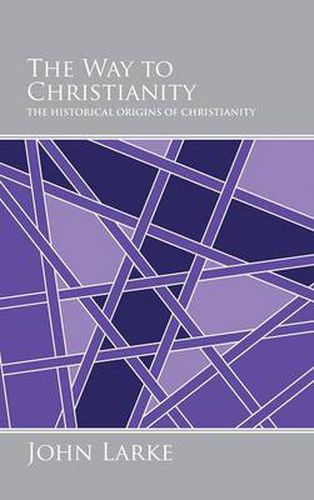Readings Newsletter
Become a Readings Member to make your shopping experience even easier.
Sign in or sign up for free!
You’re not far away from qualifying for FREE standard shipping within Australia
You’ve qualified for FREE standard shipping within Australia
The cart is loading…






This title is printed to order. This book may have been self-published. If so, we cannot guarantee the quality of the content. In the main most books will have gone through the editing process however some may not. We therefore suggest that you be aware of this before ordering this book. If in doubt check either the author or publisher’s details as we are unable to accept any returns unless they are faulty. Please contact us if you have any questions.
The earliest Christians wrote their own history to justify their faith and claim a direct line of authoritive teachings based on the words of Jesus. As a result a good deal of what they compiled was belief rewritten as though it was history. Remarkably after almost two millennia, it is possible to recover the authentic origins of Christianity, based exclusively on the historical sources rather than belief. This shows that the beginnings of Christianity lie in two quite disparate religious groups, one of which was exclusively Jewish, whilst the other was predominantly gentile. The spiritual leadership of the Jewish sect, which became known as The Way , was provided by a succession of holy -men from the same extended family, which included Jesus. The central prophesy of The Way was the imminent arrival of the Kingdom of God . When, with God’s help, the Jewish Nation would overcome Roman occupation and permanently rid itself of foreign domination. The kingdom of God was exclusively Jewish and the Gentile world played no part in it. After the death of Paul of Tarsus his followers lost their Jewish inheritance and began to see Jesus in ways that were profoundly heretical within Judaism yet wholly acceptable within the Pagan world. In particular they claimed that Jesus was the divine Son of God , rather than a
Son of God in a Jewish sense, where a deeply religious Jewish man, who did the will of God, could be regarded as a true
Son of God .
$9.00 standard shipping within Australia
FREE standard shipping within Australia for orders over $100.00
Express & International shipping calculated at checkout
This title is printed to order. This book may have been self-published. If so, we cannot guarantee the quality of the content. In the main most books will have gone through the editing process however some may not. We therefore suggest that you be aware of this before ordering this book. If in doubt check either the author or publisher’s details as we are unable to accept any returns unless they are faulty. Please contact us if you have any questions.
The earliest Christians wrote their own history to justify their faith and claim a direct line of authoritive teachings based on the words of Jesus. As a result a good deal of what they compiled was belief rewritten as though it was history. Remarkably after almost two millennia, it is possible to recover the authentic origins of Christianity, based exclusively on the historical sources rather than belief. This shows that the beginnings of Christianity lie in two quite disparate religious groups, one of which was exclusively Jewish, whilst the other was predominantly gentile. The spiritual leadership of the Jewish sect, which became known as The Way , was provided by a succession of holy -men from the same extended family, which included Jesus. The central prophesy of The Way was the imminent arrival of the Kingdom of God . When, with God’s help, the Jewish Nation would overcome Roman occupation and permanently rid itself of foreign domination. The kingdom of God was exclusively Jewish and the Gentile world played no part in it. After the death of Paul of Tarsus his followers lost their Jewish inheritance and began to see Jesus in ways that were profoundly heretical within Judaism yet wholly acceptable within the Pagan world. In particular they claimed that Jesus was the divine Son of God , rather than a
Son of God in a Jewish sense, where a deeply religious Jewish man, who did the will of God, could be regarded as a true
Son of God .